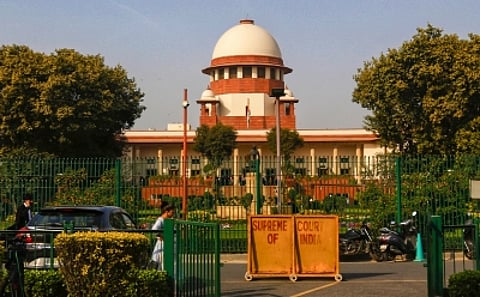
New Delhi- The Supreme Court on Friday, dismissed a Special Leave Petition (SLP) filed by the Maharashtra government, upholding a groundbreaking Bombay High Court judgment that recognized intellectual property damage as compensable under the Scheduled Castes and Scheduled Tribes (Prevention of Atrocities) Act. The case was heard by the bench of Justice B.V Nagarathna and Justice Satish Chandra Sharma.
The case originated with two Scheduled Caste researchers, Dr. Kshipra Kamlesh Uke and Dr. Shiv Shankar Das, both holding Ph.D. degrees from Jawaharlal Nehru University. Since 2014, they had been conducting a self-funded research project on socio-political awareness among youth in Nagpur, collecting over 500 survey samples from various educational institutions.
According to their narrative, while the researchers were out of the city, the son of their house owner (belonging to a higher caste), allegedly in connivance with the Bajajnagar Police Station, broke into their residence and stole their research laptops. This theft resulted in the complete loss of their raw research data, survey forms, and processed research materials.
The researchers filed a complaint, leading to an investigation. They approached the National Commission for Scheduled Castes (NCSC) seeking action and recommendations. After the Commission's initial lack of progress, they filed a petition (No. 647/2021) seeking the High Court Intervention. The Court, by Judgment dated 11/3/2022, directed the NCSC to complete the inquiry on the Petitioners’ complaint.
In compliance with the directions of this Court, the Commission completed the inquiry. During the course of the inquiry, the petitioners submitted a Ten Point demand, seeking various reliefs/compensation for loss caused to them due to the damage to their intellectual property.
Upon recommendation by the Commission, the Nagpur District Magistrate granted relief to Shiv Shankar Das in terms of Rule 12(4) of ₹1.00 lakh, in terms of Clause No.35 of the Schedule to the said Rules, compensation/relief to Kshipra Uke of ₹1.00 lakh, in terms of Clause No.36E of the Schedule to the said Rules, Relief to the victims after adding new Section 3(2)(va) of the Atrocities Act to the Charge-sheet of ₹ 3.00 lakhs; this relief was partly transferred in terms of the said rules to the petitioners on various dates, the last of which was transferred on 12/5/2022. However, the respondents did not agree with the ten point demands by the petitioners and maintained that the loss to the intellectual property rights could not be quantified or claimed as a relief or compensation under the provisions of the Atrocities Act.
The Nagpur Bench of the Bombay High Court delivered a landmark judgment on 10 November 2023, that critically expanded the interpretation of "property" in the Atrocities Act. The court held that intellectual property, digital materials, and research data are indeed forms of property capable of valuation and compensation. This interpretation directly challenged the narrow understanding previously maintained by government authorities.
The High Court's judgment explicitly noted that the term "property" should be interpreted broadly, encompassing both tangible and intangible assets. The court referenced legal definitions, including John Salmond's jurisprudential interpretation, which supports a comprehensive understanding of property rights that includes intellectual and incorporeal assets.
In its directive, the court mandated the District Magistrate to:
Thoroughly investigate the researchers' ten-point compensation demand
Assess and determine appropriate compensation for the intellectual property damage
Complete the compensation assessment within three months
Submit a detailed report to the Special Court
The Maharashtra government challenged this judgment through a Special Leave Petition in the Supreme Court, arguing against the broad interpretation of property and compensation. However, the Supreme Court's dismissal of this petition effectively validates the High Court's progressive interpretation.
By dismissing the government's challenge, the Supreme Court has reinforced the High Court's stance, sending a strong message about the protection of intellectual property rights and the need to provide meaningful remedies under anti-atrocity legislation.
The judgment represents a significant step towards recognizing and protecting intellectual property rights, particularly for researchers from marginalized communities.
You can also join our WhatsApp group to get premium and selected news of The Mooknayak on WhatsApp. Click here to join the WhatsApp group.